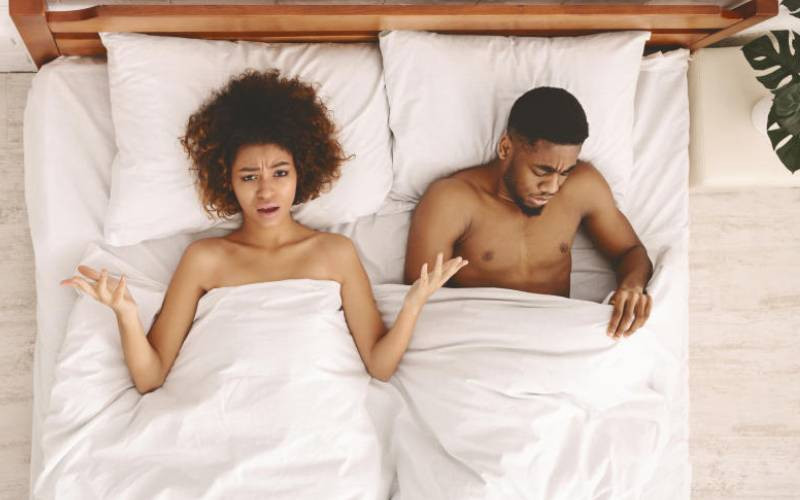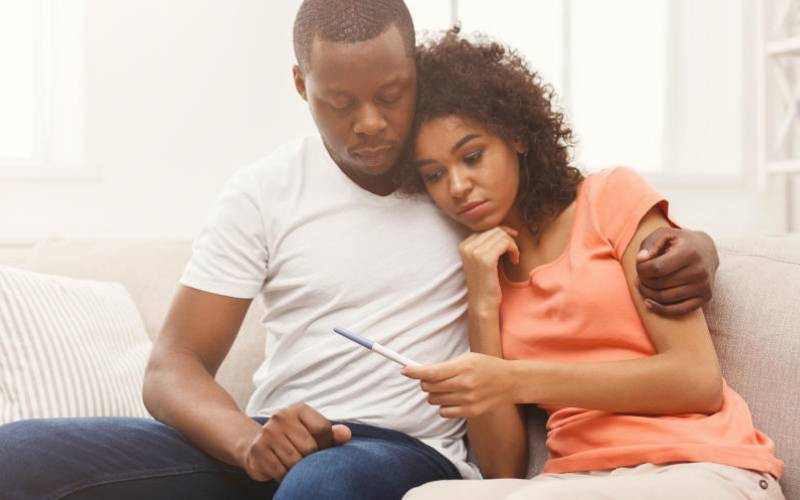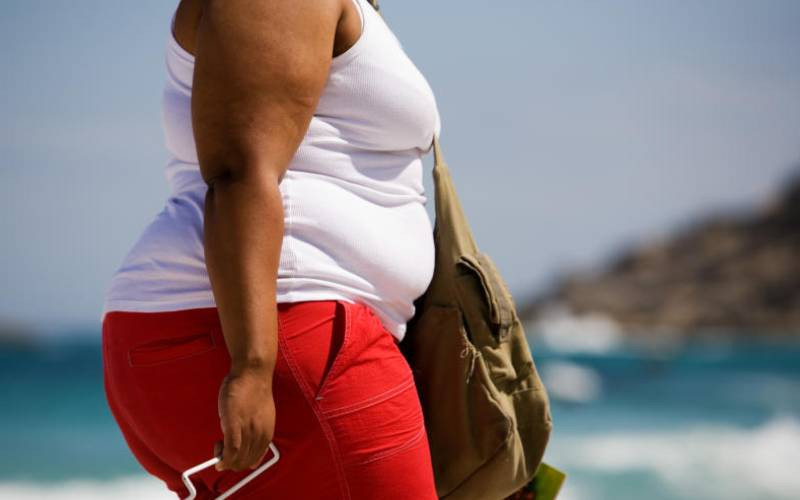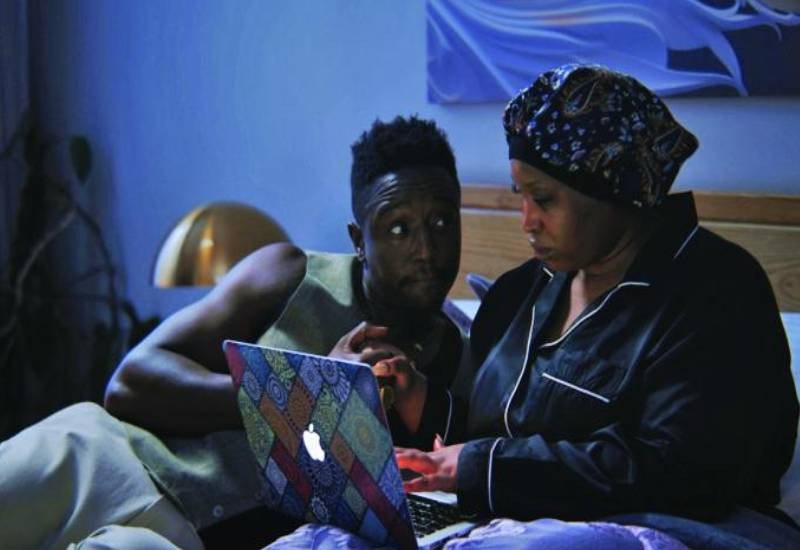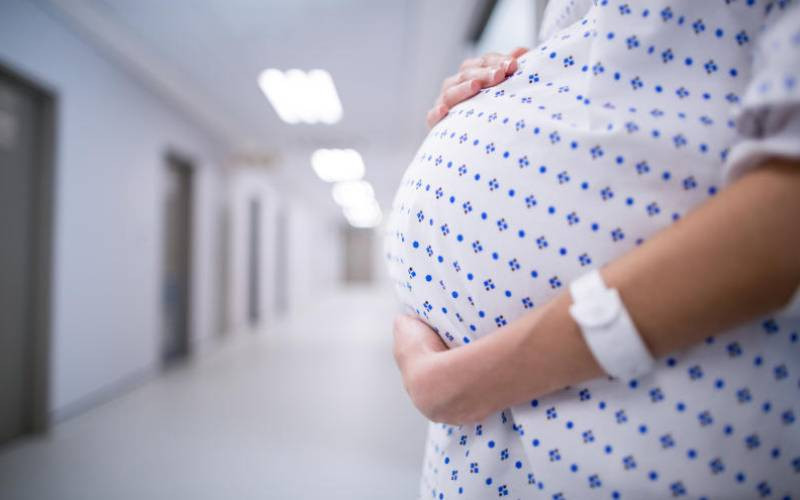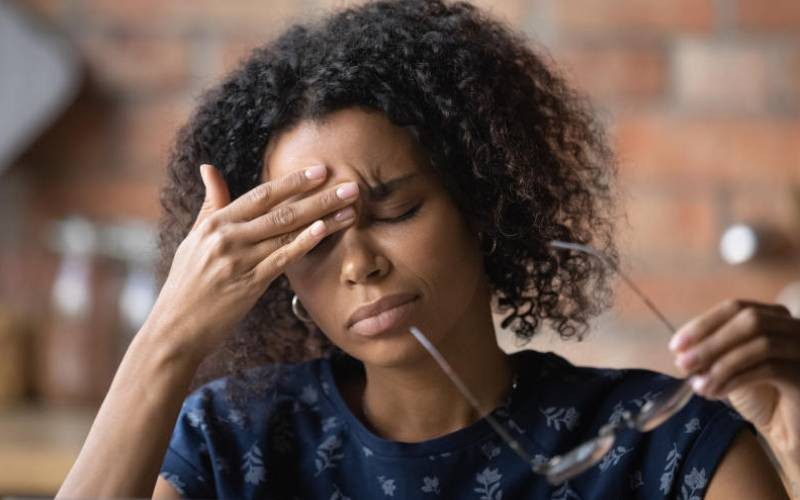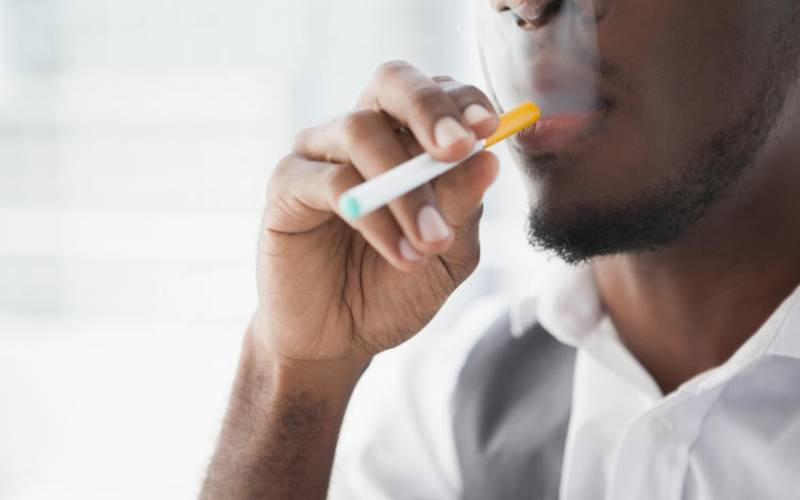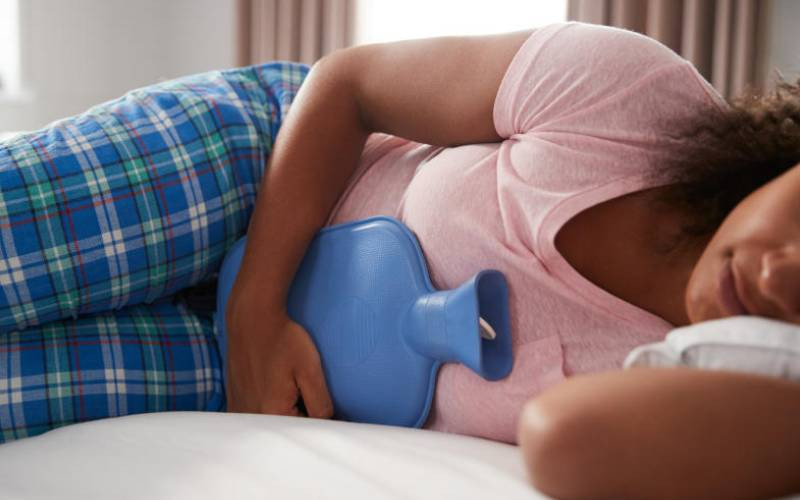
Having painful periods is a condition called dysmenorrhea. It’s normal to have some pain during menstruation with about 60% of people with a uterus having mild cramps during their period and it is estimated that about 5% to 15% of people report period pain that is so severe that it affects their daily activities according to the Cleveland Clinic
According to the National Library of Medicine, the pain is most often menstrual cramps, which are throbbing, cramping pain in your lower abdomen, and also have other symptoms, such as lower back pain, nausea, diarrhoea, and headaches.
Period pain is not the same as premenstrual syndrome (PMS) which causes many different symptoms, from weight gain, bloating, irritability, and fatigue. PMS often starts one to two weeks before your period starts.
Martha Mburu, a Nurse at Kiambu Level 5 hospital, says there are two types of dysmenorrhea, the primary and secondary, which have different causes each.
"Primary dysmenorrhea is the most common kind of period pain which is not caused by another condition, the cause is usually having too many prostaglandins, which are chemicals that your uterus makes. These chemicals make the muscles of your uterus tighten and relax, and this causes the cramps." Say Mburu
"The pain can start a day or two before your period. It normally lasts for a few days, though in some women it can last longer. This pain first starts when you are younger, just after you begin getting periods and it gets pain less you grow old and even get better after giving birth." Expounds Martha.
She continues to explain that "secondary dysmenorrhea often starts later in life and is caused by conditions which affect your uterus or other reproductive organs, such as endometriosis and uterine fibroids with the pain getting worse over time, these pain may begin before your period starts and continue after your period ends."
Martha Mburu concludes by explaining that you may be more likely to have painful periods if you got your first menstrual period before age 12 and experience periods that are heavy and sometimes last longer than seven days, smoke cigarettes, and have a biological parent who has dysmenorrhea.
- How to baby proof your home in Kenya
- Parental kissing: Should parents kiss their children on the mouth?
- The cost of mother shaming
- Fear of a 'toxic' label should not deter parents from disciplining their children
Keep Reading
Dennis Solomon, a Clinician at Rongo Sub-County Hospital, says that can there be complications of these painful periods but that menstrual cramps usually do not cause complications, other than disrupting your daily life.
"If there is a medical condition causing painful periods, there can be complications like endometriosis or pelvic inflammatory disease which can be able to lead to infertility or ectopic pregnancy, thus important to see a healthcare provider so they can rule out underlying causes of your period pain." Says Solomon
Menstrual cramps can be caused by endometriosis which is a tissue that acts similar to the lining of the uterus which grows outside of the uterus, most commonly on fallopian tubes, ovaries also uterine fibroids which are noncancerous growths in the wall of the uterus can cause pain, In some women, the opening of the cervix is small enough to impede menstrual flow, causing a painful increase of pressure within the uterus." Say, Solomon.
Dennis Solomon says that there are several treatments for menstrual cramps that don’t involve medications such as the use of a heating pad or hot water bottle on your lower back or abdomen when you have cramps.
"Getting extra rest will also help to reduce the intensity of the pain, avoiding foods that contain caffeine, smoking cigarettes and drinking alcohol, and also massaging your lower back and abdomen with regular exercise.”Says Solomon.
People who eat a balanced diet and exercise regularly may help stop cramps from being as intense.
Menstrual cramps do not cause other medical complications, but they can interfere with school, work, and social activities.
"Certain conditions associated with menstrual cramps can have complications such as endometriosis can cause fertility problems also increasing the risk of a fertilized egg implanting outside of your uterus also known as ectopic pregnancy." Concludes Mr. Solomon
 The Standard Group Plc is a multi-media organization with investments in media platforms spanning newspaper print
operations, television, radio broadcasting, digital and online services. The Standard Group is recognized as a
leading multi-media house in Kenya with a key influence in matters of national and international interest.
The Standard Group Plc is a multi-media organization with investments in media platforms spanning newspaper print
operations, television, radio broadcasting, digital and online services. The Standard Group is recognized as a
leading multi-media house in Kenya with a key influence in matters of national and international interest.



